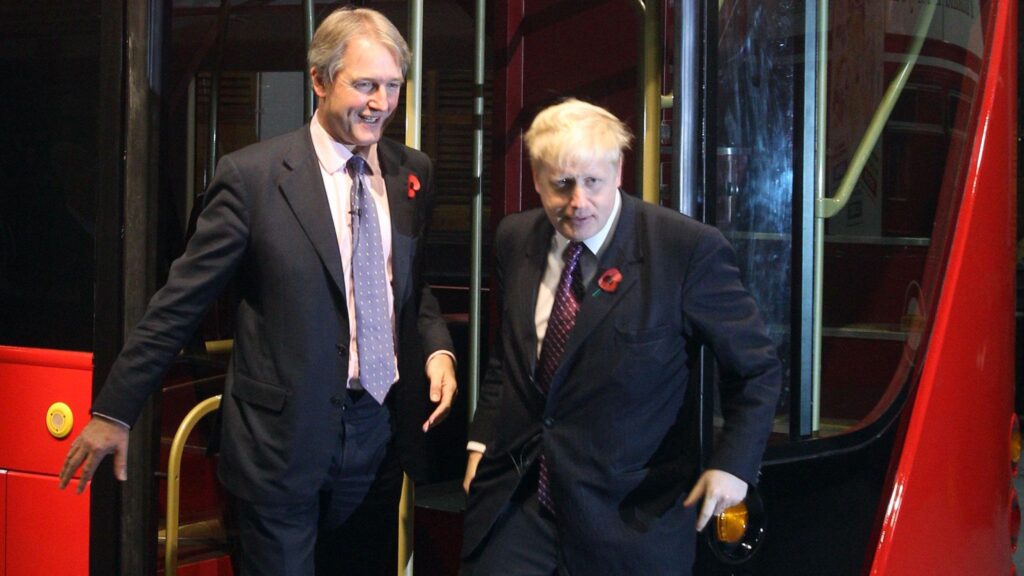At a press conference during the COP26 climate change conference, held in Glasgow in November 2021, Prime Minister Boris Johnson felt obliged to point out that the UK is not ‘remotely a corrupt country’. His remark was made in response to tough media questions about UK Members of Parliament (MPs) having ‘second jobs’, the sale of peerages to donors to Johnson’s Conservative (Tory) party and the lack of clarity over gifts Johnson has received.
In the UK, MPs are paid £82,000 (EUR 95,000) a year, plus expenses. MPs who are not government ministers can have ‘second jobs’ and many do, but they must publicly declare any additional income, including gifts and donations. Some MPs are doctors, lawyers and journalists, who continue to practice their profession and one, for a time, was also a football referee. More than 20 MPs, mainly from the Tory party, also work as consultants, for which they can receive thousands of pounds for a few days’work. However, MPs are not permitted to ‘lobby’, namely, to attempt to influence government policy in return for money.
Sticky fingers
A scandal was triggered when Tory MP Owen Patterson, who was being paid more than £100,000 (€117,000) a year as a consultant for two companies, was found, after a two-year investigation, to have broken lobbying rules. Patterson protested his innocence saying that the investigation was unfair, even suggesting that it had contributed to his wife’s suicide in 2020. Despite Paterson’s personal tragedy, the case against him was clear and the House of Commons Committee on Standards, some of whose members are MPs, recommended Paterson be suspended from parliament for 30 days.

Usually, Standards Committee recommendations are accepted without question. However, Parliament must vote to implement the committee’s recommendations, including suspensions, and Paterson’s indignant Tory allies refused to accept the decision. They attacked the integrity of the Standards Committee members and its process. MPs behaviour is a parliamentary not a government matter and, although under no obligation, Boris Johnson also decided to support Paterson and his other Brexit friends.
Johnson proposed changing the vote to suspend Paterson in two ways. First, there would be another vote to block Paterson’s suspension on compassionate grounds owing to his wife’s death. Second, another vote would establish a new committee to review disciplinary procedures for MPs. This new committee would have a Tory majority and so suggest changes that would allow Paterson not only to escape suspension, but also possibly overturn the decision that he broke the rules. Many Tory MPs did not want to vote either to support Paterson, or to change the system retroactively to help him. However, Johnson ordered and pressured all Tory MPs to vote for it.
Johnson won the votes, but the Labour party opposition framed the event as Johnson trying to save one of his friends. Much of the public, press and dozens of Tory MPs who defied Johnson’s order to support Paterson, agreed. The backlash against Johnson was furious and comparisons were made with politics in Russia. The day after the vote, Johnson was forced to back down claiming that the government had not meant to link a review of the disciplinary system with Paterson’s case. No one believed him. Paterson remained unrepentant, but as Johnson distanced himself further, Paterson resigned as an MP two days after the vote to support him.
Can’t get no satisfaction
This episode has exposed Johnson’s vulnerability inside the Tory party and in the UK more broadly. Many Tory MPs are angry and embarrassed at the mishandling of the Paterson affair. Those with lucrative second jobs as consultants are annoyed that the public will see them as corrupt and worry that the rules will change to limit or stop MPs taking these types of jobs. Importantly, the Paterson affair has also revealed that Johnson’s biggest problem is that he leads a party that is split into groups with very different views on how to govern the UK and he has managed to upset them all.
New Tory MPs elected in previous Labour party strongholds are upset because Johnson is breaking promises to invest in those areas, while plans to change the funding of social care for old people mean that poorer people living in those areas will have to pay more. More traditional right-wing Tories think that government spending is too high. Tory Brexit purists are angry that Johnson has not delivered the low-tax, low-regulation economy expected now the UK has left the European Union but, instead, has increased taxes to their highest level as a proportion of the economy since the early 1950s.OtherTory MPs, some who opposed Brexit and who never trusted Johnson, are angry that voters will be put off by perceptions of government corruption.
On the issue of corruption, the opposition Labour party smells blood. British people are relaxed over what rich people do with their money and seldom troubled by legal tax avoidance. They will also tolerate incompetence if mistakes are genuine. The British become very angry, however, if the taxes they pay for public services are not properly used, regarding this as a betrayal of their trust. Likewise, fairness matters and regardless of circumstances, the British strongly believe that the same rules should apply to everyone. The Labour party captured this feeling in saying that the Johnson’s support for Patterson showed that, ‘when the Tories break the rules, they remake the rules.’
The Labour party’s attack on corruption by Johnson and the Tory party was made more credible when, the weekend after the Paterson vote, it was revealed that 16 Tory party treasurers in the last 20 years had been granted peerages after donating £3m or more to the party. Johnson has been accused in the past of giving peerages to his friends, including his brother Jo, whom he made a ‘Baron’ in 2020. Johnson also refused to deny that Paterson would receive a peerage.

Johnson has a history of shady personal dealings. He was criticised earlier this year for a lack of clarity over two luxury holidays, one in Mustique and the other in Spain, paid for by Tory party donors. Questions also persist over who paid up to £200,000 (EUR 234,000) to refurbish Johnson’s apartment in Downing Street.
Paint it black
Johnson’s future depends on whether a fractious Tory party believes that he can still win elections and if the Labour party has finally found an effective way to attack him and win voters to their side. In the Tory party Johnson’s popularity in his party is wide but shallow. He has no loyal followers and is not admired for his character or political philosophy. Labour party leader Kier Starmer is a former public prosecutor and he will certainly pursue any allegations of corruption. For example, questions remain over the award of big government contracts to Tory contacts during the early stage of the Covid pandemic. For the first time since January 2021, some opinion polls put the Labour party slightly ahead of the Tories, while Johnson’s personal approval rating is at an all-time low.
According to Transparency International’s Corruption index, Britain is one of the world’s least corrupt countries, ranking 11th out of 180, below Germany, but ahead of France. But, as the saying goes, ‘power corrupts’ and for the time being Johnson is tainted. It remains to be seen if the allegations against him stick.
*All headings come from Rolling Stones songs.


